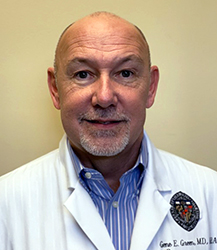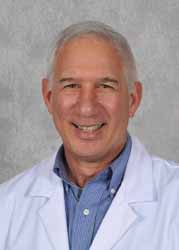Statins are a powerful tool in managing high cholesterol and preventing heart disease. Since heart disease is the leading cause of death in the U.S., statins can play a vital role by lowering low-density lipoprotein (LDL) cholesterol. This “bad” cholesterol contributes to heart attacks, strokes, and other serious complications.
Some patients have concerns about statins, and we’re here to offer clear, supportive information to help you make informed choices about your health and address any misconceptions.
How Do Statins Work?
Statins are medications that lower cholesterol by reducing its production in the liver. While diet and exercise are key in managing cholesterol, statins offer additional protection for those at risk of cardiovascular disease. Statins are especially important for individuals with conditions like diabetes, coronary artery disease, or those who’ve had a stroke.
Statins could be prescribed if your cholesterol is high or if you have other significant risk factors. Unless immediate action is necessary, lifestyle changes are usually encouraged to see if they can reduce risk before introducing statins.
Common Side Effects of Statins
Most people tolerate statins well, but they can cause side effects as your body adjusts to the medication. Common side effects include:
- Headaches
- Nausea
- Muscle and joint aches
- Slight increase in blood sugar levels
Fortunately, these side effects are usually mild and temporary. Should you experience unusual symptoms, your MPCP provider can adjust your treatment plan to ensure you’re comfortable.
Who Should Be Cautious with Statins?
Certain individuals are at greater risk for side effects, including those who:
- Are over 80 years old
- Have liver or kidney disease
- Take multiple cholesterol-lowering medications
- Drink excessive amounts of alcohol
For those who fall into any of these categories, your MPCP provider will monitor your treatment closely and potentially adjust your dosage or suggest additional tests to ensure that statins are safe and effective.
Additional Risk Stratification Testing:
CIMT Testing
For patients unsure about starting statins, MPCP offers Carotid Intima-Media Thickness (CIMT) Testing at our Columbia Cardiology office. This simple, non-invasive test measures plaque buildup in your arteries and helps assess your risk of heart disease. CIMT can provide valuable insight into your heart health and help you evaluate your cardiovascular risk and the potential benefits of statins.
CT Coronary Artery Calcium Scoring
Coronary artery calcium (CAC) scoring is obtained through a CT scan. It is most helpful in patients who are being screened who have intermediate or borderline heart disease risk, particularly those with a family history of very early coronary artery disease, if statin therapy decision remains uncertain.
Apolipoprotein B (Apo B) Levels
Apolipoprotein B (Apo B) is a protein that transports cholesterol throughout your body, mainly carrying LDL and very low-density lipoprotein (VLDL), both of which can contribute to plaque buildup in your arteries. Consider Apo B as a taxi that primarily delivers “bad” cholesterol. High levels of Apo B in your blood can increase your risk of heart disease.
Performing an Apo B blood test to measure this protein and better understand your cholesterol levels is not routinely recommended. In certain cases, specifically in those with high triglyceride levels, elevated Apo B levels could indicate the need for cholesterol-lowering treatments, such as statins, to protect your heart health.
The Benefits of Statins
For most patients, the benefits of statins—such as reducing the risk of heart attack, stroke, and heart disease—far outweigh the potential risks. Statins have been proven to help people live longer, healthier lives by improving heart health.
If you have any concerns about statins or risk for other serious complications, your MPCP provider is here to help you decide what’s best for your health.
Dr. Green is a Maryland Primary Care Physicians, LLC partner and is certified by the American Board of Internal Medicine and the American Board of Family Medicine. He sees patients at the Glen Burnie office.





